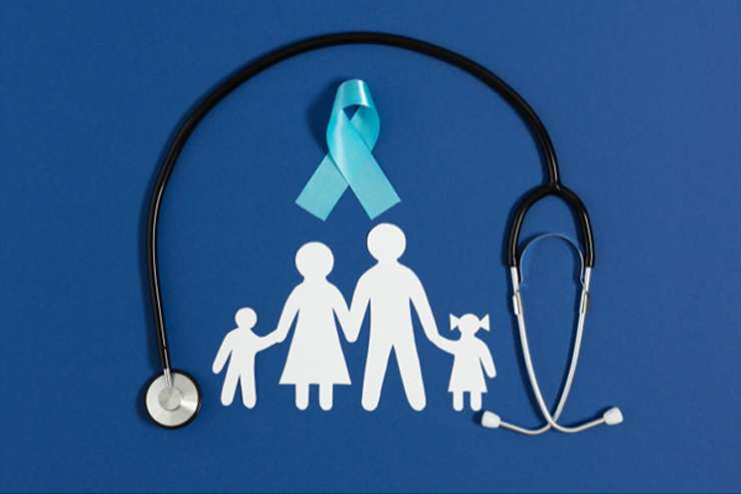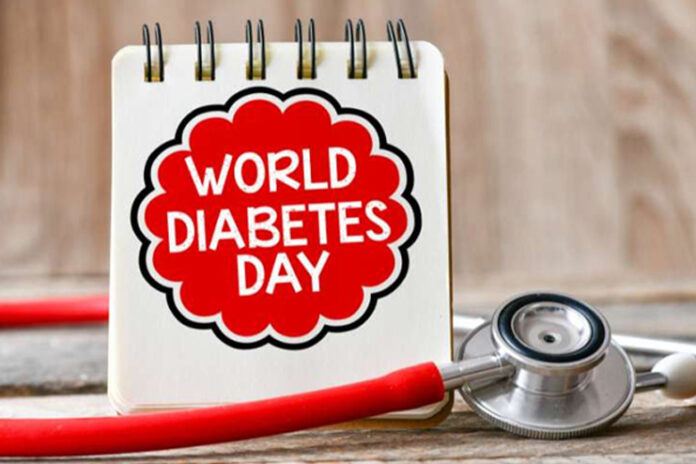Affiliate Disclaimer
Some links in this article are affiliate links. We may earn a small commission if you make a purchase through these links, at no extra cost to you. We only recommend products we find useful to our readersManaging diabetes at home, at work, and school is a daily struggle for millions of people with the disease. Every year on November 14, we recognize World Diabetes Day, which honors Sir Frederick Banting’s birthday, the day he co-discovered insulin. WDD was created in 1991 by the World Health Organization (WHO) and the International Diabetes Federation (IDF) in response to the rising global diabetes population. The UN formally recognized WDD as a day to raise diabetes awareness in 2006. In addition to its historical origins, World Diabetes Day is significant because it brings people together to fight a disease affecting millions. Each year, a particular topic guides the campaign; in 2024, the theme is “Empowering Global Health.”
Diabetes education is essential because it informs communities about management, prevention, and the value of early diagnosis. By promoting awareness, we can fight stigma, encourage healthy living, and eventually lessen the increasing toll that this chronic illness takes on international health systems.
Understanding Diabetes and Stress

Diabetes is a long-term illness marked by high blood sugar levels caused by the body’s incapacity to make or use insulin, a hormone necessary for controlling blood sugar levels. The two main forms of diabetes are Type 1, which is caused by the immune system attacking the pancreatic cells that produce insulin, and Type 2, which is frequently associated with lifestyle choices and leads to insulin resistance.
Stress is the body’s and mind’s response to unfamiliar or challenging circumstances. It could be temporary, like stressing over a presentation you have to give at work the next day or attending a weekend party where you don’t know many people. Physical factors like a disease or accident may also be involved. Stress, both mental and physical, can greatly impact the management of diabetes.
Since the 17th century, researchers have been debating the possible connection between stress and diabetes. According to a review paper, those who suffer from stress, anxiety, depression, or a combination of these illnesses are more likely to develop diabetes. High blood sugar levels can result from the body’s release of stress-related hormones like cortisol and adrenaline, which can cause the liver to release glucose into the bloodstream.
According to research, almost 30% of people with diabetes say they experience high levels of stress, which can make it more difficult for them to maintain ideal blood sugar management. Additionally, chronic stress is linked to poor dietary choices and decreased physical exercise.
Science Behind Stress and Blood Sugar Levels

Stress sets off a complicated series of physiological reactions that significantly impact the body’s metabolic functions, especially those related to blood sugar management. When it encounters a stressor, the body goes into what is called the “fight or flight” response, and hormones are released quickly in this process.
However, long-term stress can upset this delicate balance and develop insulin resistance. Over time, a chronic increase in cortisol can impair insulin’s capacity to promote glucose uptake in cells, making it more difficult for the body to control blood sugar levels properly. This can cause a rise in blood sugar, which can be especially harmful to people who have diabetes.
Research has shown that poor glycemic management is associated with high levels of stress, resulting in a vicious cycle whereby elevated blood sugar causes anxiety and stress. Developing successful management strategies for individuals with diabetes requires an understanding of the relationship between stress and blood sugar levels, highlighting the importance of stress reduction as a component of comprehensive care.
Stress Management in Daily Routines

Developing a customized stress management strategy is a decisive first step in reaching balance and well-being. The American Psychological Association reports that in 2022, 27% of Americans reported feeling so stressed that they could not function. Seventy-five percent attributed stress to emotions of anxiety and sadness as well as physical problems such as headaches, excessive fatigue, and nausea. You have far more influence over stress than you realize.
Effective stress management stems from the straightforward understanding that you are in charge of your life. It could involve working out, journaling, or taking up a hobby. Establish attainable objectives, like setting aside 15 minutes every day to relax. Combine relaxing methods, artistic endeavors, and physical exercise to create a comprehensive strategy.
Making mindfulness and relaxation a priority in a hectic schedule can be difficult. To save time, consider planning brief breaks throughout the day—set time on your calendar for mindfulness exercises like short nature walks or deep breathing techniques. You can improve your mindfulness journey using several apps.
For relaxation and meditation, try Calm, which is well-known for its calming sounds and sleep stories, or Headspace, which provides guided meditations catered to different requirements.
Insight Timer is another excellent resource with its extensive collection of free mindfulness exercises and meditations.
Statistics and Global Impact
Globally, the prevalence of diabetes has skyrocketed; according to recent estimates, 537 million adults suffer from the disease. Experts predict this number will increase to 643 million by 2030, underscoring the need for efficient intervention techniques. One of the most significant public health issues of our day is diabetes, whose incidence has more than doubled over the last three decades, according to the International Diabetes Federation (IDF).
Statistics on diabetes demonstrate the rising worldwide impact on people, families, and nations. According to the IDF Diabetes Atlas (2021), 10.5% of adults aged 20 to 79 have diabetes, and nearly half are unaware of the disease. Furthermore, people with diabetes are more likely to experience complications such as heart disease, renal failure, and limb amputations, which can lower their quality of life and increase their need for medical care.
These figures highlight the seriousness of diabetes as a public health emergency and the need for extensive education and preventative programs. Societies must prioritize diabetes management and prevention strategies to improve the lives of the millions of individuals affected by this chronic condition and reduce the enormous burden on healthcare systems.
World Diabetes Day Campaign Themes

Every year, World Diabetes Day focuses on a particular theme that highlights essential problems facing the diabetes community worldwide. ‘Empowering Global Health’ is the topic for World Diabetes Day in 2024. This theme emphasizes the value of communities banding together to fight this worldwide problem in addition to focusing on personal health. It highlights the importance of fair access to healthcare and calls on communities, organizations, and governments to collaborate to remove obstacles that keep people from getting the care they need.
It is impossible to overestimate the importance of these subjects; they act as a focal point for global public awareness campaigns and educational programs. From global social media campaigns to community outreach programs, these themes—which focus on crucial components like advocacy, education, and access to care—provide a framework for various activities.
For example, organizations can campaign for legislation changes that improve healthcare accessibility or hold seminars to teach people how to manage diabetes. These yearly themes organize resources and motivate action by creating a sense of urgency and unity, aiming to improve the quality of life for individuals with diabetes.
Conclusion
World Diabetes Day is more than just a date on the calendar; it’s a significant opportunity to educate and raise awareness about the disease in communities. By drawing attention to important topics like prevention and access to care, this day strengthens our shared resolve to fight the diabetes pandemic. Let’s motivate one another to act—exchange practical knowledge, take part in neighborhood activities, and strongly support better diabetes care. By working together, we can empower people and build a better, more knowledgeable society, improving the lives of millions of people with diabetes for the long run.
References
- https://www.who.int/health-topics/diabetes
- https://worlddiabetesday.org/
- https://www.un.org/en/observances/diabetes-day
- https://www.novonordisk-us.com/about/world-diabetes-day.html
- https://dtc.ucsf.edu/types-of-diabetes/type2/understanding-type-2-diabetes/how-the-body-processes-sugar/blood-sugar-stress/
- https://health.clevelandclinic.org/stress-and-diabetes
- https://www.healthline.com/health/diabetes-and-stress
- https://www.diabetes.org.uk/living-with-diabetes/emotional-wellbeing/stress
- https://pmc.ncbi.nlm.nih.gov/articles/PMC9561544/
- https://www.medicalnewstoday.com/articles/326193
- https://www.discoverymedicine.com/Frans-Pouwer/2010/02/11/does-emotional-stress-cause-type-2-diabetes-mellitus-a-review-from-the-european-depression-in-diabetes-edid-research-consortium/
- https://pmc.ncbi.nlm.nih.gov/articles/PMC8758450/
- https://diabetesjournals.org/spectrum/article/18/2/121/1827/Stress-and-Diabetes-A-Review-of-the-Links
- https://thestoryexchange.org/6-ways-to-manage-stress-for-mental-health-awareness-month/
- https://hopeforhealingfoundation.org/stress-management/
- https://www.vcuhealth.org/news/building-a-healthy-routine-to-cope-with-stress
- https://www.helpguide.org/mental-health/stress/stress-management
- https://www.webmd.com/balance/stress-management/stress-management
- https://www.apa.org/news/press/releases/stress/2022/concerned-future-inflation
- https://www.calm.com/
- https://www.headspace.com/
- https://insighttimer.com/
- https://idf.org/about-diabetes/diabetes-facts-figures/
- https://diabetesatlas.org/resources/
- https://diabetesatlas.org/
- https://www.who.int/news-room/fact-sheets/detail/diabetes
- https://idf.org/about-diabetes/diabetes-facts-figures/
- https://diabetesatlas.org/resources/
- https://www.pacehospital.com/world-diabetes-day
- https://breakthrought1d.org.uk/news-and-events/world-diabetes-day-2024/
- https://www.awarenessdays.com/awareness-days-calendar/world-diabetes-day-2024/
In this Article


















